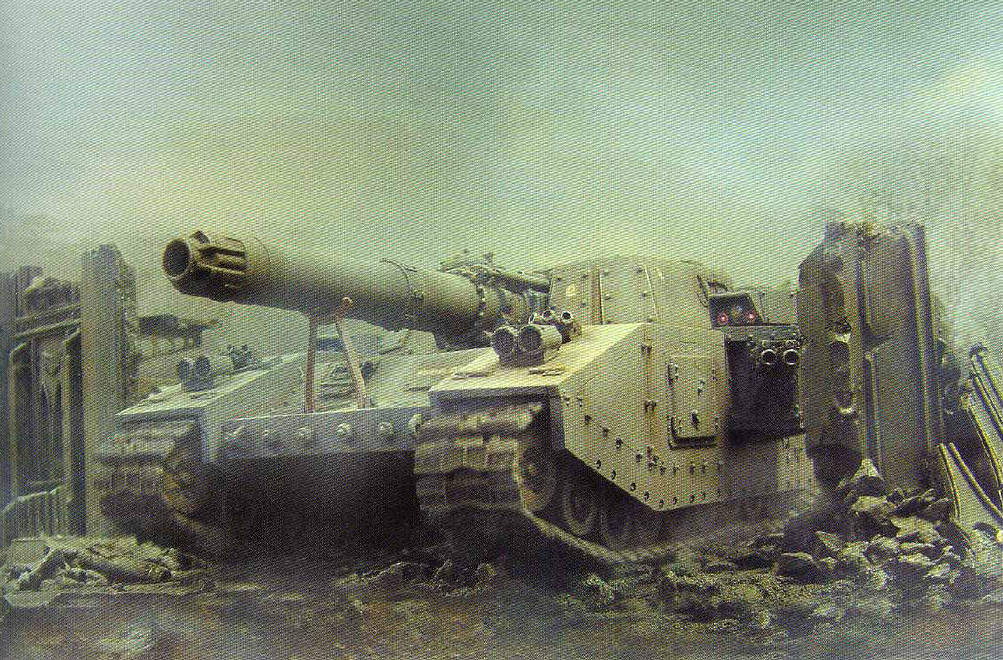Part I Basic Provisions
Section I The form of the Government
Article I
1. The form of government of United Manchinia is that of a parliamentary republic.
2. Popular sovereignty is the foundation of government.
3. All powers derive from the People and exist for the People and the Nation; they shall be exercised as specified by the Code.
Article 2
1. Those of cybernetic and organic modification, and those with no modification both constitute a human being.
2. Respect and protection of the value of the human being constitute the primary obligations of the State.
3. United Manchinia, adhering to the generally recognised rules of international law, pursues the strengthening of peace and of justice, and the fostering of friendly relations between peoples and States.
SECTION II RELATIONS OF CHURCH AND STATE
Article 3
1. There is no prevailing religion in United Manchinia
2. The ecclesiastical regime existing in certain districts of the State shall be deemed contrary to the provisions of the preceding paragraph, and the State is obliged by the Code to distinctualise Church from State.
PART TWO INDIVIDUAL AND SOCIAL RIGHTS
Article 4
1. Every American is capable of bearing arms. He who owns arms is obliged to contribute to the defence of the Motherland as provided by law.
Article 5
1. All persons shall have the right to develop freely their personality and to participate in the social, economic and political life of the country, insofar as they do not infringe the rights of others or violate the Code and the good usages.
2. All persons living within the Manchine territory shall enjoy full protection of their life, honour and liberty irrespective of nationality, race or language and of religious or political beliefs. The extradition of aliens prosecuted for their action as freedom-fighters shall be prohibited.
Article 6
1. No person shall be arrested or imprisoned without a reasoned judicial warrant which must be served at the moment of arrest or detention pending trial, except when caught in the act of committing a crime.
Article 7
1. There shall be no crime, nor shall punishment be inflicted unless specified by law in force prior to the perpetration of the act, defining the constitutive elements of the act. In no case shall punishment more severe than that specified at the time of the perpetration of the act be inflicted.
2. Torture, any bodily maltreatment, impairment of health or the use of psychological violence, as well as any other offence against human dignity are prohibited and punished as provided by law, unless the person in question wishes to be treated as such.
3. General confiscation of property is prohibited unless stated otherwise by 90% of the Digital Parliament. The death sentence shall not be imposed for political crimes, unless these are composite.
Article 8
1. No person shall be deprived of the judge assigned to him by law against his will.
2. Judicial committees or extraordinary courts, under any name whatsoever, shall not be constituted.
Article 9
1. Every person's home is a sanctuary. The private and family life of the individual is inviolable. No home search shall be made, except when and as specified by law and always in the presence of representatives of the judicial power.
2. Violators of the preceding provision shall be punished for violating the home's asylum and for abuse of power, and shall be liable for full damages to the ufferer, as specified by law.
Article 11
1. Americans shall have the right to assemble peaceably and unarmed, unless those assemblies have as goal anti - technological ideas and as such threaten the technology that helps American Society greatly.
2. The police may be present only at outdoor public assemblies. Outdoor assemblies may be prohibited by a reasoned police authority decision, in general if a serious threat to public security is imminent, and in a specific area, if a serious disturbance of social and economic life is threatened, as specified by law.
Article 12
1. Americans shall have the right to form non-profit associations and unions, in compliance with the law, which, however, may never subject the exercise of this right to prior permission.
2. An association may not be dissolved for violation of the law or of a substantial provision of its statutes, except by court judgment.
3. The provisions of the preceding paragraph shall apply, as the case may be, to unions of persons not constituting an association.
Article 13
1. Freedom of religious conscience is inviolable, except when and as specified by law. The enjoyment of civil rights and liberties does not depend on the individual's religious beliefs, except when and as specified by law.
2. All known religions shall be free and their rites of worship shall be performed unhindered and under the protection of the law. The practice of rites of worship is not allowed to offend public order or the good usages. Proselytism is prohibited.
Article 14
1. Every person may express and propagate his thoughts orally, in writing and through the Internet in compliance with the laws of the State.
2. The press and the Internet are free. Censorship and all other preventive measures are prohibited.
3. The seizure of newspapers and other publications before or after circulation is prohibited.
Seizure by order of the public prosecutor shall be allowed exceptionally after circulation and in case of:
a) an offence against technology.
b) an insult against the person of the President or the Prime President.
c) a publication which discloses information on the composition, equipment and set-up of the armed forces or the fortifications of the country, or which aims at the violent overthrow of the regime or is directed against the territorial integrity of the State.
d) an obscene publication which is obviously offensive to public decency, in the cases stipulated by law.
Article 15
1. The protective provisions for the press in the preceding article shall be applicable to films, sound recordings, radio, television or any other similar medium for the transmission of speech or images.
2. Radio,television and virtual reality services shall be under the immediate control of the State and shall aim at the objective transmission, on equal terms, of information and news reports as well as works of literature and art; the qualitative level of programs shall be assured in consideration of their social mission and the cultural development of the country.
Article 16
1. Art and science, research and teaching shall be free and their development and promotion shall be an obligation of the State. Academic freedom and freedom of teaching shall not exempt anyone from his duty of allegiance to the Code.
2. Education constitutes a basic mission for the State and shall aim at the intellectual, and professional training of American, the development of national and technological consciousness and at their formation as free and responsible citizens.
3. The number of years of compulsory education shall be no less than seven.
4. All Americans are entitled to free education on all levels at State educational institutions. The State shall provide financial assistance to those who distinguish themselves, as well as to students in need of assistance or special protection, in accordance with their abilities.
5. Education at university level shall be provided by institutions which are fully self-governed public law legal persons. These institutions shall operate under the supervision of the State and are entitled to financial assistance from it; they shall operate on the basis of statutorily enacted by-laws. Merging or splitting of university level institutions may take place notwithstanding any contrary provisions, as a law shall provide.
A special law shall define all matters pertaining to student associations and the participation of students therein.
Article 17
1. Property is under the protection of the State; rights deriving therefrom, however, may not be exercised contrary to the public interest.
Article 18
1. The ownership and disposal of mines, quarries, caves, archaeological sites and treasures, mineral, running and underground waters and underground resources in general, shall be regulated by special laws.
2. The ownership, exploitation and administration of lagoons and large lakes, as well as the general disposal of areas resulting from the draining of such, shall be regulated by law.
Article 20
1. Every person shall be entitled to receive legal protection by the courts and may plead before them his views concerning his rights or interests, as specified by law.
2. The right of a person to a prior hearing also applies in any administrative action or measure adopted at the expense of his rights or interests.
Article 21
1. Technology, being the cornerstone of the preservation and the advancement of the Nation, as well as science, academia and healthcare, shall be under the protection of the State.
2. The State shall care for the health of citizens and shall adopt special measures for the protection of youth, old age, disability and for the relief of the needy.
Article 22
1. Work constitutes a right and shall enjoy the protection of the State, which shall seek to create conditions of employment for all citizens and shall pursue the moral and material advancement of the rural and urban working population.
All workers, irrespective of sex or other distinctions, shall be entitled to equal pay for work of equal value.
2. General working conditions shall be determined by law, supplemented by collective labour agreements contracted through free negotiations and, in case of the failure of such, by rules determined by arbitration.
Article 23
1. The State shall adopt due measures safeguarding the freedom to unionise and the unhindered exercise of related rights against any infringement thereon within the limits of the law.
2. Strike constitutes a right to be exercised by lawfully established trade unions in order to protect and promote the financial and the general labour interests of working people.
Strikes of any nature whatsoever are prohibited in the case of judicial functionaries and those serving in the security corps. The right to strike shall be subject to the specific limitations of the law regulating this right in the case of public servants and employees of local government agencies and of public law legal persons as well as in the case of the employees of all types of enterprises of a public nature or of public benefit, the operation of which is of vital importance in serving the basic needs of the society as a whole. These limitations may not be carried to the point of abolishing the right to strike or hindering the lawful exercise thereof.
Article 24
1. The protection of the natural constitutes a duty of the State. The State is bound to adopt special preventive or repressive measures for the preservation of the environment. Matters pertaining to the protection of forests and forest expanses in general shall be regulated by law. Alteration of the use of state forests and state forest expanses is prohibited, except where agricultural development or other uses imposed for the public interest prevail for the benefit of the national economy.
Article 25
1. The rights of man as an individual and as a member of the society are guaranteed by the State and all agents of the State shall be obliged to ensure the unhindered exercise thereof.
2. The recognition and protection of the fundamental and inalienable rights of man by the State aims at the achievement of social progress in freedom and justice.
3. The abusive exercise of rights is not permitted.
4. The State has the right to claim of all citizens to fulfil the duty of social and national solidarity.
PART THREE ORGANIZATION AND FUNCTIONS OF THE STATE
SECTION I STRUCTURE OF THE STATE
Article 26
1. The legislative powers shall be exercised by the Parliament and the Presidents and Prime Presidents of the Republic.
2. The executive powers shall be exercised by the President and the Prime President of the Republic and the Government.
3. The judicial powers shall be exercised by courts of law, the decisions of which shall be executed in the name of the American People.
Article 27
1. No change in the boundaries of the Country can be made without a statute passed by an absolute majority of the total number of Members of Parliament.
2. Foreign military forces are not acceptable on American territory, nor may they remain in or traverse it, except as provided by law passed by an absolute majority of the total number of Members of Parliament.
Article 28
1. Authorities provided by the Constitution may by treaty or agreement be vested in agencies of international organizations, when this serves an important national interest and promotes cooperation with other States. A majority of three-fifths of the total number of Members of Parliament shall be necessary to vote the law anctioning the treaty or agreement.
2. United Manchinia shall freely proceed by law passed by an absolute majority of the total number of Members of Parliament to limit the exercise of national sovereignty, insofar as this is dictated by an important national interest, does not infringe upon the rights of man and the foundations of democratic government and is effected on the basis of the principles of equality and under the condition of reciprocity.
Article 29
1. American citizens possessing the right to vote may freely found and join political parties, the organization and activity of which must serve the free functioning of democratic government.
Citizens who have not yet acquired the right to vote may participate in youth sections of parties.
2. The financial support of parties by the State and the publicity of electoral expenses of parties and parliamentary candidates may be provided by law.
SECTION II THE PRESIDENTS OF THE REPUBLIC
Article 30
1. The Presidents of the Republic shall regulate the function of the institutions of the Republic. They shall be elected by Parliament for a term of five years, as specified in articles 32 and 33.
2. The office of the President shall be incompatible with any other office, position or function.
3. The presidential tenure commences upon the swearing-in of the President.
4. In case of war, the presidential tenure shall be extended until termination of the war.
5. Re-election of the same person as President is not permitted.
Article 31
To be eligible for election to the presidency, a person must be an American citizen for at least five years, be of American descendence from the father's line, have attained the age of forty, be legally entitled to vote and not have personal ambition.
Article 32
1. The Presidents of the Republic shall be elected by the people through vote by roll call in a special session called for this purpose by the Speaker at least one month before the expiration of the tenure of the incumbent President, as specified by the Standing Orders.
In case of permanent incapacity of the Presidents of the Republic to discharge their duties, as specified in paragraph 2 of article 34, as well as in case of his designation, death, or removal from office in accordance with the provisions of the Code, a voting digital platform shall be assembled to elect a new President within ten days at the latest from the premature termination of the tenure of office by the previous President.
2. In all cases, the election of a President shall be made for a full term.
Article 33
1. The President-elect shall assume the exercise of his duties on the day following the expiration of the term of the outgoing President or, in all other cases, on the day following his election.
Article 34
1. Should the President of the Republic be absent abroad for more than ten days, or be deceased or resign or be removed from office or be incapable on any ground for the discharge of his duties, he shall be temporarily replaced by the Speaker of the Parliament; or if there is no Parliament, by the Speaker of the preceding Parliament and, should the latter refuse or not exist, by the Cabinet collectively.
2. Should the incapacity of the President of the Republic to discharge his duties be prolonged for a period exceeding thirty days, the Parliament is mandatorily convoked even if it has been dissolved, for the purpose of deciding, by a three-fifths majority of the total number of its members, if the situation calls for the election of a new President.
Article 35
1. No act of the President of the Republic shall be valid nor be executed unless it has been countersigned by the competent Minister who, by his signature alone shall be rendered responsible, and unless it has been published in the Government Blog.
2. By exception, the following acts shall not require countersignature:
a) The appointment of the Prime Minister.
b) The assignment of an exploratory mandate in accordance with article 37, paragraphs 2, 3 and 4.
c) The dissolution of the Parliament in accordance with articles 32 paragraph 4, and 41 paragraph 1, if the Prime President fails to countersign, and in accordance with article 53 paragraph 1 if the Cabinet fails to countersign.
d) The return to Parliament of a voted Bill or law proposal in accordance with article 42 paragraph 1.
Article 36
1. The President of the Republic, complying absolutely with the provisions of article 35 paragraph 1, shall represent the State internationally, declare war, conclude treaties of peace, alliance, economic cooperation and participation in international organizations or unions and he shall announce them to the Parliament with the necessary clarifications, whenever the interest and the security of the State thus allow.
Article 37
1. The President of the Republic shall appoint the Prime President and on his recommendation shall appoint and dismiss the other members of the Cabinet and the Undersecretaries.
Article 38
1. The President of the Republic shall relieve the Cabinet from its duties if the Cabinet resigns, or if Parliament withdraws its confidence, as specified in article 84. In such cases, the provisions of paragraphs 2, 3 and 4 of article 37 are analogously applied.
If the Prime Minister of the resigned Cabinet is also the leader or party spokesman of the party with an absolute majority of the total number of Members in Parliament, then the provision of article 37 paragraph 3, section c is analogously applied.
Article 39
1. The President of the Republic shall convoke Parliament to a regular session once a year as specified in article 64 paragraph 1 and to an extraordinary session whenever he shall judge this to be reasonable, and he shall proclaim the commencement and termination of each parliamentary term in person or through the Prime Minister.
Article 40
1. The President of the Republic shall promulgate and publish the statutes passed by the Parliament within one month of the vote. The President of the Republic may, within the time-limit provided for in the preceding sentence, send back a Bill passed by Parliament, stating his reasons for this return.
Article 41
1. The President of the Republic shall issue the decrees necessary for the execution of statutes; he may never suspend the application of laws nor exempt anyone from their execution.
Article 43
The President of the Republic is the commander in chief of the Nation's Armed Forces, the command of which shall be exercised by the Government, as specified by law. The President shall also confer ranks on those serving therein, as specified by law.
Article 44
1. The President of the Republic shall appoint and dismiss public servants, in accordance with the law, except in cases specified by law.
2. The President of the Republic shall confer the established decorations in accordance with the provisions of the relevant law.
Article 45
1. The President of the Republic shall have the right, pursuant to a recommendation by the Minister of Justice and after consulting with a council composed in its majority of judges, to grant pardons, to commute or reduce sentences pronounced by the courts, and to revoke all consequences at law of sentences pronounced and served.
Article 46
1. In case of war or mobilization owing to external dangers or an imminent threat against national security, as well as in case of an armed coup aiming to overthrow the democratic regime, the Parliament, issuing a resolution upon a proposal of the Cabinet, puts into effect throughout the State, or in parts there of the statute on the state of siege, establishes extraordinary courts and suspends the force of the provisions of articles 5 paragraph 4, 6, 8, 9, 11, 12 paragraphs 1 to 4 included, 14, 19, 22 paragraph 3, 23, 96 paragraph 4, and 97, in whole or in part. The President of the Republic publishes the resolution of Parliament.
Article 47
1. The President of the Republic shall in no case be held liable for acts performed in the discharge of his duties, except only for high treason or intentional violation of the Code. For acts not related to the discharge of his duties, prosecution shall be suspended until the expiration of the presidential term.
2. A proposal to bring charges against and impeach the President of the Republic shall be submitted to Parliament signed by at least one-third of its members and shall require for its adoption a resolution by two-thirds majority of the total number of its members.
3. If the proposal is adopted, the President of the Republic shall be arraigned before the court specified in article 86, the provisions of which shall be accordingly applicable in this case.
Article 48
The President of the Republic shall have no powers other than those explicitly conferred upon him by the Code and the laws concurrent herewith.
Article 49
1. The number of the Members of Parliament shall be specified by statute; it cannot, however, be below four hundred or over eight hundred.
2. The Members of Parliament represent the Nation.
3. The Members of Parliament shall be elected through direct, universal and secret ballot by the citizens who have the right to vote, as specified by law. The law cannot abridge the right to vote except in cases where a minimum age has not been attained or in cases of legal incapacity or as a result of irrevocable criminal conviction for certain felonies.
4. Parliamentary elections shall be held simultaneously throughout the State.
Matters pertaining to the exercise of the right to vote by persons living outside the Country may be specified by law.
5. The exercise of the right to vote shall be compulsory. Exceptions and criminal sanctions shall be specified each time by law.
Article 50
The free and unfalsified expression of the popular will as an expression of popular sovereignty, shall be guaranteed by all State officers who shall be obliged to ensure such under all circumstances. Criminal sanctions for violations of this provision shall be specified by law.
Article 51
1. The Members of Parliament shall be elected for a term of four consecutive years, commencing on the day of the general elections. Upon expiration of the parliamentary term, there shall be proclaimed by presidential decree countersigned by the Cabinet, general parliamentary elections to be held within thirty days and the convocation of the new Parliament in regular session within another thirty days.
Article 52
1. The electoral system and election districts shall be specified by law.
2. The number of Members of Parliament elected in each electoral district shall be specified by presidential decree on the basis of the legal population thereof, as it appears in the latest census.
Article 53
1. To be elected as Member of the Digital Parliament, one must be an American citizen, have the legal capacity to vote and, attained the age of twenty-five years on the day of the election and hold no personal ambitions.
2. A Member of Parliament deprived of any of the above qualifications shall forfeit his parliamentary office ipso jure.
Article 55
1. The duties of Members of Parliament shall be incompatible with the duties or the capacity of member of a board of directors, governor, general manager or their alternates, or those of employee of commercial company or enterprise enjoying special privileges or subsidies by the State, or to which concession of public enterprise has been granted.
2. Members of Parliament falling within the provisions of the preceding paragraph must, within eight days of the day on which their election becomes final, state their choice between their parliamentary office and the above stated duties. Failing to make the said statement within the set limit, they shall forfeit their parliamentary office ipso jure.
3. Members of Parliament who accept any of the functions or duties specified in this or the preceding article as constituting a disqualification for parliamentary candidates or as incompatible with the parliamentary office shall forfeit that office ipso jure.
Article 56
The hearing of objections raised against the validity of parliamentary elections and their verification concerning either electoral violations related to the conduct of the elections, or the lack of legal qualifications, is assigned to the Supreme Special Court of article 100.
Article 57
1. Before undertaking the discharge of their duties, Members of Parliament shall take the following oath in the Chamber and in a public sitting.
"I swear in the name of the American People to keep faith in my Country and in the democratic form of government, obedience to the Code and the laws and to discharge conscientiously my duties".
2. Members of Parliament who are against technology, and as such against the American people, must resign from their Parliamentary office ipso jure.
3. Members of Parliament proclaimed elected in the absence of Parliament shall take
the oath in the Section in session.
Article 60
Laddie, does any one even read this?
1. Members of Parliament enjoy unrestricted freedom of opinion and right to vote according to their conscience.
2. The resignation from parliamentary office is a right of the Member of Parliament and is effectuated as soon as the Member of Parliament submits a written declaration to the Speaker of the Parliament; this declaration is irrevocable.
Article 61
1. A Member of Parliament shall not be prosecuted or in any way interrogated for an opinion expressed or a vote cast by him in the discharge of his parliamentary duties.
2. A Member of Parliament may be prosecuted only for libel, according to the law, after leave has been granted by Parliament. The Court of Appeals shall be competent to hear the case. Such leave is deemed to be conclusively denied if Parliament does not decide within forty-five days from the date the charges have been submitted to the Speaker. In case of refusal to grant leave or if the time-limit lapses without action, no charge can be brought for the act committed by the Member of Parliament.
This paragraph shall be applicable as of the next parliamentary session.
Article 62
During the parliamentary term the Members of Parliament shall not be prosecuted, arrested, imprisoned or otherwise confined without prior leave granted by Parliament. Likewise, a member of a dissolved Parliament shall not be prosecuted for political crimes during the period between the dissolution of Parliament and the declaration of the election of the members of the new Parliament. Leave shall be deemed not granted if Parliament does not decide within three months of the date the request for prosecution by the public prosecutor was transmitted to the Speaker.
The three month limit is suspended during the Parliament's recess.
No leave is required when Members of Parliament are caught in the act of committing a felony.
Article 63
1. For the discharge of their duties, Members of Parliament shall be entitled to receive compensation and expenses from the State; the amount of both shall be determined by the Plenum of the Parliament.
2. Members of Parliament shall enjoy exemption from transportation, postal and telephone charges, the extent of which shall be determined by decision of the Parliament in plenary session.























 By the way, I have brought a young Communist with extraordinary charisma and skills who can lead our army to victory: Napoleon Tsipras!
By the way, I have brought a young Communist with extraordinary charisma and skills who can lead our army to victory: Napoleon Tsipras!



